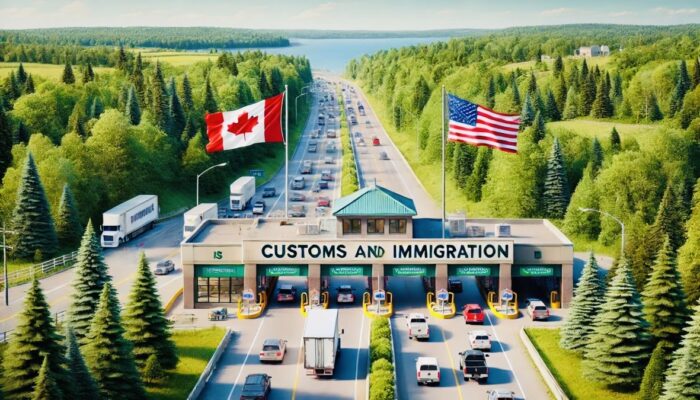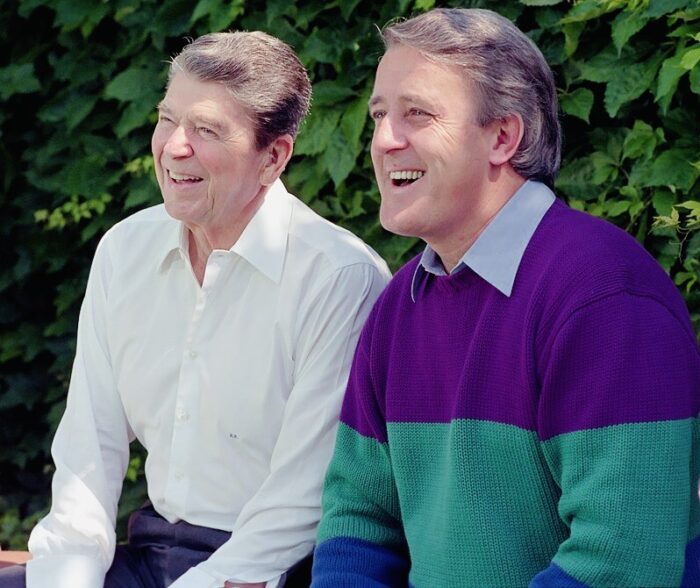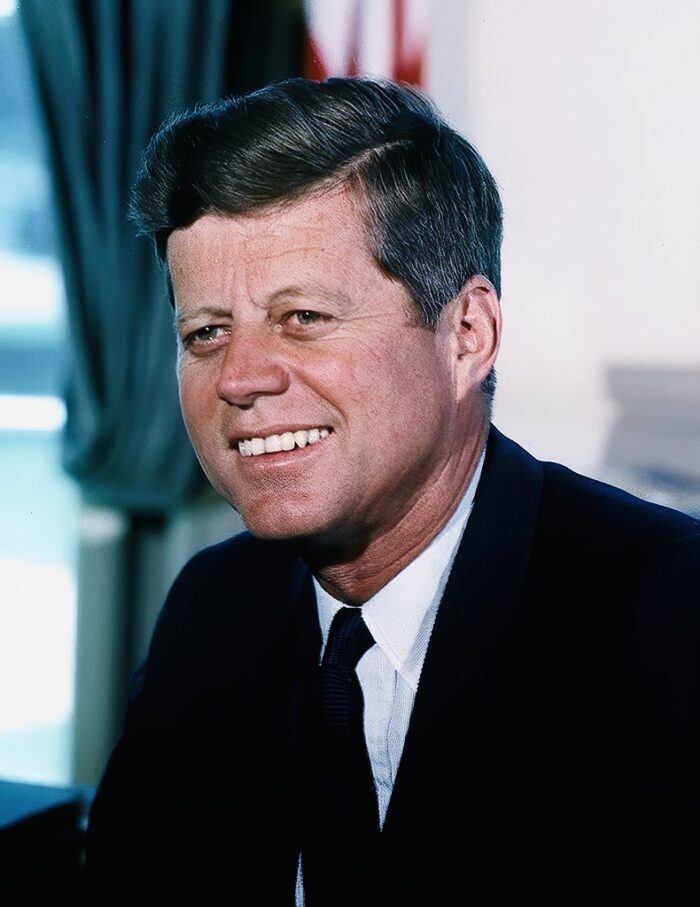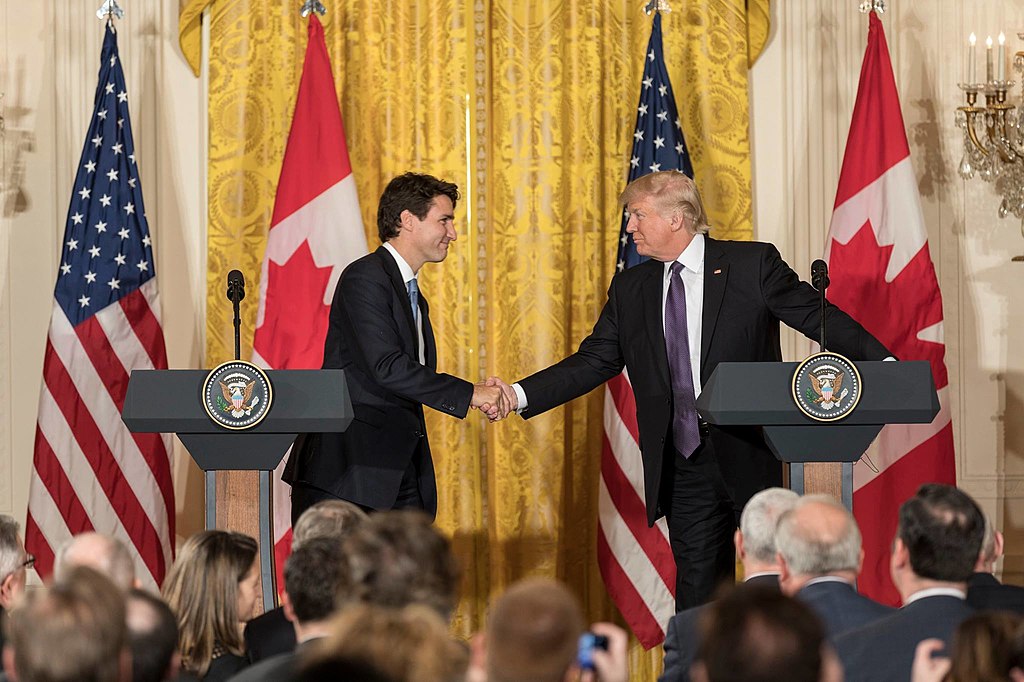Reason prevailed when Donald Trump, on February 3, pressed the pause button and postponed the imposition of hefty U.S. tariffs on Canadian and Mexican exports. Temporarily, at least, he thereby averted a nasty trade war that would be damaging to all three countries and the global economy.
Trump, however, slapped a 10 percent tariff on China, and the Chinese government responded in kind.
Trump’s senseless threat to wage economic warfare against Canada, in particular, was in keeping with his personality as a bully. Trump’s bull-in-the-china-shop behavior was a sober reminder that he is unpredictable, and that his definition of friendship tends to be transactional and is usually governed by dollars and cents.
Canada is the United States’ closest neighbor and ally, yet Trump portrayed Canada as an adversary. Trump’s “America First” credo translates into running roughshod over friends when they do not bow to his demands.

When U.S. Vice President J.D. Vance was asked why Trump treats Canada with such cavalier disregard, he callously replied, “Spare me the sob stories.”
No one should have been surprised by Vance’s insensitive remark or by Trump’s threat to impose 25 percent tariffs on Canadian goods and a 10 percent levy on its oil and gas exports.
In his inaugural address on January 20, Trump said, “Instead of taxing our citizens to enrich other countries, we will tariff and tax foreign countries to enrich our citizens.” He described his proposal as an “External Revenue Service” plan to lower taxes for all Americans at the expense of Canada and Mexico, the U.S.’ biggest trade partners.
Trump said that tariffs were intended to sharply reduce the flow of illegal migrants and fentanyl into the United States. But as he surely must know, the seizures of fentanyl at the Canadian border represented less than one percent of all fentanyl seized by U.S. customs agents last year. And the number of illegal migrants crossing into the U.S. from Canada has been a fraction of the masses of migrants pouring in from Mexico.
Among Trump’s other complaints were that American banks are forbidden to operate in Canada and that the Canadian government spends far too little on defence. His first grievance is baseless. His second one is debatable.
Even if all his grievances had been based on reality, his decision to slap punishing tariffs on Canada was surely a betrayal of the United States’ historic friendship and alliance with its northern neighbor.
Canada, as well as Mexico, has been among the United States’ closest trade partner since 1987, when the North American Free Trade Agreement was enacted. Signed by Canadian Prime Minister Brian Mulroney and U.S. President Ronald Reagan, it eliminated most tariffs and established guidelines to banish regulatory barriers.

During his first term in office, Trump pressured the Canadian and Mexican governments to replace the North American Free Trade Agreement with the United States-Mexico-Canada Agreement, or USMCA. But with his threat to impose tariffs on Canada and Mexico, Trump egregiously violated the USMCA, as Mexican President Claudia Sheinbaum correctly pointed out.
Trump’s willingness to use tariffs as leverage against key trade partners was proof that his allegiance to allies is erratic, skin-deep and ultimately unreliable.
And his persistent calls for Canada to become the “cherished” 51st state of the United States are insulting. Never in modern times has an American president shown such utter disrespect toward Canada. Yet this is the same president who, in the name of Pax Americana, wants to reoccupy the Panama Canal, buy Greenland and, most improbably, take possession of the Gaza Strip.
Trump, who fancies himself as a consummate negotiator, waited almost until the last moment to offer Canada and Mexico a temporary reprieve, which expires on March 4.
In telephone conversations with Sheinbaum and Canadian Prime Minister Justin Trudeau, he agreed to postpone tariffs by 30 days as negotiations on economic and border arrangements proceed.
Reacting to Trump’s threat, Sheinbaum announced that Mexico would send 10,000 troops to the U.S. border to keep migrants and fentanyl at bay. Trudeau, under an existing $1.3 billion plan, promised to beef up security along the world’s longest undefended border and establish a joint strike force to combat organized crime, fentanyl and money laundering.
Before the latest developments unfolded, Trudeau warned Trump that U.S. exports to Canada as of February 3 would be subjected to a 25 per cent tariff on $30 billion worth of goods. A further round of tariffs, valued at $125 billion, would be applied in three weeks’ time if the dispute remained unresolved.
“We don’t want to be here, we didn’t ask for this, but we will not back down in standing up for Canadians,” Trudeau said in a measured but defiant speech.
Among the first items to face Canadian tariffs would have been American cars, beer, wine, spirits, vegetables, clothing, household appliances, furniture, shoes and perfume. This would have resulted in considerably higher prices for American consumers.
In announcing these measures, Trudeau sounded a conciliatory note.
“As President John F. Kennedy said many years ago, geography has made us neighbors. History has made us friends, economics has made us partners and necessity has made us allies.

“That rang true for many decades prior to President Kennedy’s time in office, and in the decades since, from the beaches of Normandy to the mountains of the Korean Peninsula, from the fields of Flanders to the streets of Kandahar, we have fought and died alongside you during your darkest hours during the Iranian hostage crisis. Those 444 days, we worked around the clock from our embassy to get your innocent compatriots home.
“During the summer of 2005, when Hurricane Katrina ravaged your great city of New Orleans, or mere weeks ago when we sent water bombers to tackle the wildfires in California. When the world stood still on Sept. 11, 2001, we provided refuge to stranded passengers and planes. We were always there, standing with you, grieving with you. The American people.
“Together, we’ve built the most successful economic, military and security partnership the world has ever seen. A relationship that has been the envy of the world.
“Yes, we’ve had our differences in the past, but we’ve always found a way to get past them. As I’ve said before, if President Trump wants to usher in a new golden age for the United States, the better path is to partner with Canada, not to punish us.”
Thankfully, Trump listened and temporarily set aside tariffs on Canada and Mexico. Yet Canadians are gripped by uncertainty. Trump may yet change his mind should he decide that Canada’s concessions are insufficient. Would he then wage economic war against Canada in the quest to make America “great again”?
This would be, as The Wall Street Journal soberly noted, the “dumbest war trade in history.”
True enough.
Trump is likely to climb down from his ladder. But in the meantime, Canadians would be wise to gird themselves for what may be an unfavorable outcome. With Trump in the White House, Canada should expect the unexpected.
